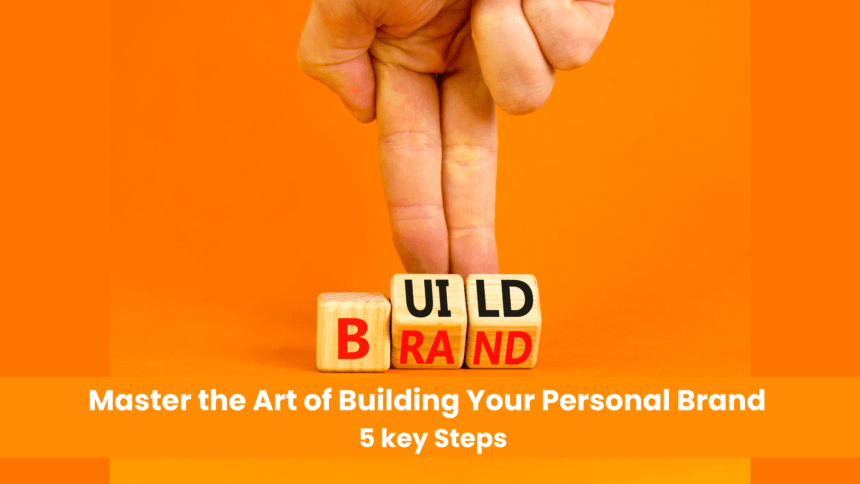Introduction
In an age where building a personal brand can make or break careers, understanding how to cultivate and maintain a compelling personal brand is more crucial than ever. This guide lays out five key steps to building a personal brand that stands out in a crowded marketplace.
Understanding Personal Branding
Definition and Importance
Building a personal brand involves crafting a unique image and reputation that reflects your professional identity and values. It goes beyond self-promotion, fostering trust and authenticity that resonates with your audience and sets you apart from the competition. In essence, building a personal brand is about creating a distinct persona that embodies your professional ethos and aspirations.
1. Define Your Unique Value Proposition
Identifying Your Strengths
The first step in building a personal brand is understanding what makes you unique. Reflect on your skills, experiences, and passions. What do you excel at that others find challenging? This introspection helps pinpoint your unique strengths. When you know your strengths, you can communicate them effectively, laying a solid foundation for building a personal brand.
Crafting Your Personal Mission Statement
With your strengths in mind, create a personal mission statement. This concise statement encapsulates who you are, what you do, and why it matters. It’s the cornerstone of your efforts in building a personal brand, guiding all your branding activities. A well-crafted mission statement provides clarity and direction, ensuring your personal brand reflects your true professional identity.
2. Identify Your Target Audience
Understanding Your Audience’s Needs
Knowing your audience is pivotal in building a personal brand. Research their needs, preferences, and pain points. Understanding what drives them allows you to tailor your message effectively, ensuring it resonates and adds value to their lives. Building a personal brand is not just about self-promotion; it’s about creating a connection with your audience that is meaningful and impactful.
Tailoring Your Message
Once you understand your audience, customize your messaging to speak directly to them. Use language and content that align with their interests and challenges. This targeted approach enhances engagement and builds a loyal following. By focusing on your audience’s needs and preferences, you make building a personal brand a collaborative and engaging process.
3. Develop Your Online Presence
Building a Professional Website
A professional website serves as the cornerstone of your online presence. It should be visually appealing, easy to navigate, and reflective of your personal brand. Include a blog, portfolio, and contact information to provide comprehensive insights into your professional identity. Building a personal brand online starts with creating a digital space that showcases your skills, experiences, and values effectively.
Leveraging Social Media Platforms
Social media is a powerful tool for building a personal brand. Choose platforms where your target audience is most active and establish a consistent presence. Share valuable content, engage with followers, and showcase your expertise to build credibility and reach. Building a personal brand on social media involves more than just posting content; it requires interaction, engagement, and authenticity.
4. Create Consistent Content
Establishing a Content Calendar
Consistency is key in building a personal brand. Develop a content calendar to plan and schedule your posts. This helps maintain a regular posting rhythm, ensuring your audience stays engaged and looks forward to your updates. A well-organized content calendar is essential for building a personal brand, as it ensures that your messaging remains consistent and aligned with your brand values.
Diversifying Content Formats
Diversify your content to keep it interesting and engaging. Mix blog posts, videos, infographics, and podcasts to cater to different preferences. This variety not only appeals to a broader audience but also showcases your versatility. Building a personal brand requires a dynamic approach to content creation, ensuring that you meet the diverse needs of your audience.
5. Network and Engage
Attending Industry Events
Networking is vital for building a personal brand. Attend industry events, conferences, and seminars to connect with like-minded professionals. These interactions can lead to valuable opportunities and collaborations that enhance your brand’s visibility and credibility. Building a personal brand offline is just as important as your online efforts, providing opportunities for real-world connections and professional growth.
Engaging with Your Audience Online
Engagement doesn’t stop at posting content. Actively interact with your audience through comments, messages, and social media discussions. This two-way communication fosters a sense of community and strengthens your relationship with your followers. Building a personal brand involves creating a dialogue with your audience, making them feel valued and heard.
Monitoring and Adapting Your Brand
Gathering Feedback
To ensure your personal brand remains relevant and effective, regularly gather feedback from your audience. This can be done through surveys, social media polls, or direct conversations. Constructive feedback provides insights into what works and what needs improvement. Building a personal brand is an ongoing process that benefits from continuous feedback and adaptation.
Adjusting Your Strategy
Use the feedback to refine your branding strategy. Stay adaptable and willing to make changes based on audience preferences and market trends. This continuous improvement approach keeps your brand dynamic and aligned with your audience’s evolving needs. Building a personal brand requires flexibility and a willingness to evolve as your audience and industry change.
Conclusion
Building a personal brand is a multifaceted process that requires dedication and strategic effort. By defining your unique value proposition, understanding your audience, developing an online presence, creating consistent content, and engaging with your community, you can craft a personal brand that not only stands out but also thrives in today’s competitive landscape. Building a personal brand is about authenticity, consistency, and connection, ensuring that your professional identity is both impactful and enduring.
For more content follow Humstory.













